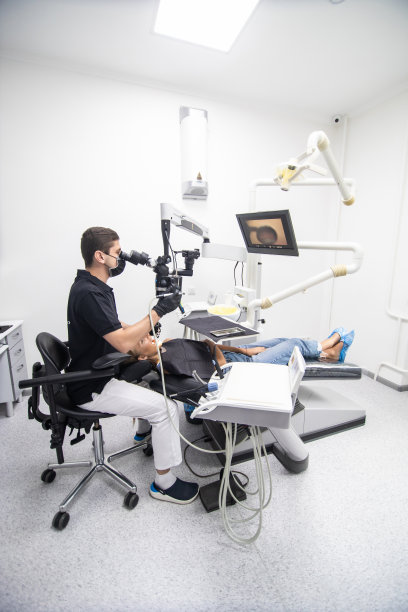Essential Guidelines to Ensure a Safe and Effective Dental Filling Experience for Your Oral Health
Summary: Dental fillings are essential procedures aimed at restoring damaged teeth and maintaining oral health. This article provides essential guidelines that ensure a safe and effective dental filling experience. It covers the significance of choosing the right dentist, preparing for the filling procedure, understanding post-treatment care, and recognizing potential complications. By following these guidelines, patients can alleviate anxiety, ensure optimal outcomes, and foster long-term dental health. Through these insights, individuals can take proactive steps to make their dental experiences more comfortable and successful, ultimately contributing to their overall well-being.
1. Selecting the Right Dentist Matters

Choosing a qualified dentist is the cornerstone of a successful dental filling experience. Its crucial to select a dentist who not only possesses the necessary skills but also has a good reputation. You can start by seeking recommendations from family, friends, or healthcare professionals. Research online reviews and check the dentists credentials to ensure they are qualified and experienced in performing dental fillings.
Once you have a shortlist, consider visiting their practice. A clean, welcoming office is indicative of a professional environment. During the consultation, pay attention to how comfortable the staff makes you feel. A dentist who takes the time to explain the procedure and answers your questions can greatly enhance your experience, alleviating any anxieties you may have.
Additionally, consider the types of fillings they offer. Different materials, such as amalgam, composite, and resin, come with varying benefits. Understanding these options can help you discuss with your dentist the best solution for your specific needs and preferences.
2. Preparing for Your Filling Appointment
Preparation can significantly influence the outcome of your dental filling appointment. Begin by discussing any medications you are currently taking with your dentist. Certain medications can affect anesthesia administration and post-treatment care. Be honest about your medical history to avoid complications during the procedure.
Its also advisable to follow any pre-appointment guidelines provided by your dentist. This could include avoiding certain foods or drinks before your appointment, especially if sedation will be used. Arriving well-hydrated and having a light meal before the appointment can help your body handle the treatment better.
Lastly, consider having a calming routine before your appointment. Whether it involves deep breathing exercises or listening to calming music, reducing anxiety can help make the experience more tolerable. Bring a friend or family member to the appointment if it helps ease your nerves; having someone supportive nearby can provide comfort during the procedure.
3. Post-Treatment Care is Crucial
After the dental filling procedure, appropriate aftercare is essential for healing and avoiding complications. Initially, it’s important to abide by your dentist’s instructions regarding care. You may be advised to avoid certain foods for a few hours to allow the anesthesia to wear off and to prevent biting your cheek or tongue.
Secondly, maintaining proper oral hygiene is vital. Brush gently around the filled area and use non-abrasive toothpaste to avoid damaging the filling. Regular flossing is equally important to remove food particles and plaque that may get trapped between teeth.
Monitoring the filled tooth for any unusual sensations or discomfort is also crucial. If you experience prolonged sensitivity, pain, or if the filling feels loose, it is essential to contact your dentist immediately. Addressing potential issues early can prevent further complications and ensure the longevity of your dental filling.
4. Recognizing Potential Complications Early
While dental fillings are generally safe, recognizing potential complications early can save you from discomfort and additional dental work. Common issues include sensitivity to hot or cold foods, which may diminish over time. However, if sensitivity persists, it’s worth consulting your dentist to rule out any problems.
Sometimes, fillings may crack, wear down, or even become loose. Vigilant self-monitoring will help identify these changes early. If you notice a gap forming or if food gets stuck easily, seek professional advice promptly.
Another potential complication is an allergic reaction to the filling material itself. Though rare, it can occur, particularly with metal fillings. Symptoms such as swelling or severe discomfort should be addressed immediately. Your dentist can provide guidance on alternative filling materials that are safer for you.
Summary:
Ensuring a safe and effective dental filling experience starts with selecting a qualified dentist and preparing adequately for the appointment. Following up with attentive post-treatment care and recognizing any potential complications early are pivotal steps in maintaining oral health. By adhering to these essential guidelines, patients can foster a positive experience that supports their long-term dental well-being.
This article is compiled by Vickong Dental and the content is for reference only.



